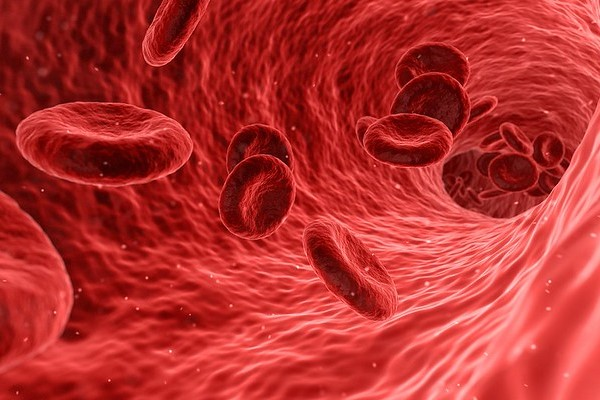Pfizer Hemophilia Gene Therapy Meets Phase 3 Goals, But Its Success Matters More to Sangamo
July 27, 2024
Source: https://medcitynews.com/author/fvinluan/
 313
313
Pfizer’s hemophilia A gene therapy reduced annualized bleeding rates in a Phase 3 clinical trial, setting the stage for discussions with regulators. However, the market for such one-time treatments is uncertain, as uptake of commercialized hemophilia gene therapies remains slow.
By Frank Vinluan

A Pfizer gene therapy for hemophilia A reduced bleeding rates in patients with the inherited blood disorder, meeting goals of its Phase 3 study. The preliminary results announced Wednesday are measures taken at 15 months in a study that will follow patients for up to five years, meaning the one-time treatment’s durability remains an open question. The pharmaceutical giant now plans to meet with regulators to discuss next steps for the therapy.
In hemophilia A, insufficient levels of a clotting protein called factor VIII make patients susceptible to frequent bleeding events. Treatment includes regular infusions of this clotting protein to prevent these events. The Pfizer gene therapy, giroctocogene fitelparvovec, delivers a functioning version of the gene that codes for factor VIII, enabling patients to produce this clotting protein themselves.
The open-label Phase 3 study enrolled 75 adult males with moderately severe to severe hemophilia. These patients are being compared to themselves. Before receiving the gene therapy, patients participated in a lead-in study, during which they received routine infusions of factor VIII replacement therapy for at least six months.
The Phase 3 study’s main goal is to measure annualized bleeding rates. The preliminary results are from a primary efficacy analysis of 50 participants. Results showed that from week 12 through at least 15 months, the average annualized bleeding rate was 1.24. That compares with the average total annualized bleeding rate of 4.73 in participants before they received the gene therapy. The reduction in bleeding rates is statistically significant.
In 2021, the FDA placed the Phase 3 study under a clinical hold after factor VIII levels in some treated patients reached greater than 150%. High levels of the clotting protein can lead to blood clots. The study was later cleared to resume. On Wednesday, Pfizer said transient elevated factor VIII levels of 150% or greater were observed in 49.3% of dosed participants. But the company added that these higher levels had no impact on efficacy and safety. Of the 15 serious adverse events reported, 13 of them reported in 10 patients were deemed to be related to the treatment. Pfizer disclosed no additional details about these complications but said they resolved in response to clinical management.
The Phase 3 study will follow participants for five years. In addition, a long-term follow-up study will evaluate patients for up to a total of 15 years. In the nearer term, Pfizer said analyses of the preliminary results are ongoing and additional data will be presented at upcoming medical meetings.
“We look forward to advancing this latest innovation to help address the medical and treatment burden associated with frequent and time-consuming [intravenous] infusions or injections, building on Pfizer’s more than 40-year effort to advance hemophilia treatment,” James Rusnak, senior vice president and chief development officer at Pfizer, said in a prepared statement.
If Pfizer is able to win FDA approval for giroctocogene fitelparvovec, its market prospects remain uncertain. Hemophilia A is already served by the BioMarin Pharmaceutical gene therapy Roctavian. Since winning FDA approval last year, Roctavian has yet to catch on with hemophilia patients, who are apparently comfortable sticking to currently available chronic treatment options. While BioMarin is working to improve uptake of its gene therapy, the company has also said divesting the product is one of the options it is considering. Meanwhile, Hemgenix, a hemophilia B gene therapy approved in 2022 and marketed by CSL Behring, has yet to become a blockbuster seller.
Giroctocogene fitelparvovec is part of a broader Pfizer hemophilia therapy pipeline. In April, the FDA approved Pfizer’s Beqvez, a gene therapy for hemophilia B, which is rarer than hemophilia A. The company has also filed regulatory submissions in the U.S. and Europe for marstacimab as a potential treatment for both hemophilia A and B. The subcutaneously injected drug is an antibody designed to block an anticoagulant protein in the body, which in turn allows for generation of an enzyme important in clotting.
Giroctocogene fitelparvovec was initially developed by Sangamo Therapeutics. Pfizer licensed global rights to the therapy in 2017 and took over responsibility for its clinical development two years later. Sangamo could receive up to $220 million in milestone payments, plus royalties from sales of an approved product. That cash is crucial to Sangamo, which is weathering financial woes. Last year, Sangamo lost research collaborations with Biogen and Novartis, leading to a corporate restructuring and job cuts. In its financial reports, Sangamo has said the inability to secure funding or partnerships for its programs may lead the company to file for bankruptcy.
Public domain image by Flickr user SciTechTrend
By editorRead more on
- Gan & Lee Pharmaceuticals’ new PROTAC drug GLR2037 tablets have been approved for clinical trials to enter the field of prostate cancer treatment March 3, 2026
- AideaPharmaceuticals plans to raise no more than 1.277 billion yuan through a private placement to focus on the global clinical development of innovative HIV drugs March 3, 2026
- Giant Exits! Its Star Business Acquired March 3, 2026
- Focusing on cardiovascular and cerebrovascular diseases! OpenMediLead Medical Intelligence Dual Engines Launch Internal Testing, Connecting Drug Development and Clinical Diagnosis in a Closed Loop March 3, 2026
- Innovent Biologics Announces Approval of New Indication for BTK Inhibitor “Pitubrutinib” in China March 3, 2026
your submission has already been received.
OK
Subscribe
Please enter a valid Email address!
Submit
The most relevant industry news & insight will be sent to you every two weeks.



